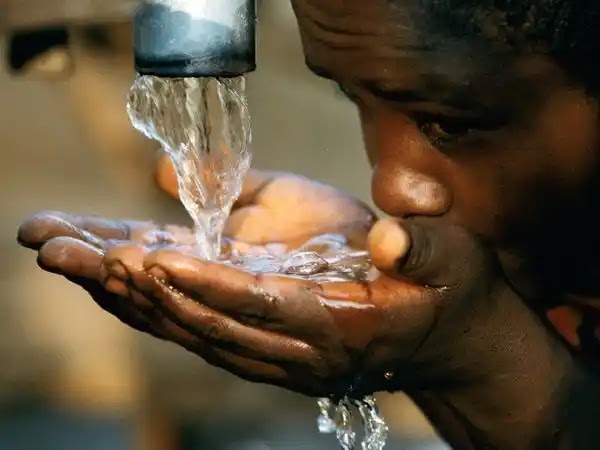Prof. Joseph Utsev, Minister of Water Resources and Sanitation, stated this on Tuesday during the unveiling of the Nigerian Roadmap for Water Quality Management and Guidelines for Rural Drinking Water Quality Monitoring Surveillance in Abuja.
Utsev saw the roadmap as an opportunity to improve the country's negative narrative on Water, Sanitation, and Hygiene (WASH) indices.
According to him, according to the 2021 WASH Normal Outcome Routine Mapping 3, 67% of the population has access to basic water supply services, but just 13% has access to securely managed drinking water services.
He said the report revealed that contaminated water at the source and at the point of consumption stood at 68 and 70 per cent, respectively.
Utsev, who was represented by Mrs Elizabeth Ugoh, the Director, Water Quality Control and Sanitation in the ministry, said all states had the responsibility to provide potable water for their population.
“However, only 28 out of the 36 states have urban water supply utilities or state water agencies with 16 states having fully functional urban utilities, while 12 were partially functional.
“About 41 per cent of all taps fed by urban water utility supply are contaminated with faecal matter.
“A conscious effort must be made for access to improved water sources to ensure that water safety measures that minimise drinking water contamination from the source to the point of use are in place,” he said.
The minister said the event was an opportunity for all stakeholders to ensure that sustainability was achieved, as many water supply utilities were poorly managed, leading to breakdown and abandonment.
Mrs Zuliat Mohammed, thebDesk Officer, Village Level Operation and Maintenance (VLOM), said many water utilities had not been managed sustainably, saying there is need for continuous capacity building to change the poor narrative.
She expressed optimism that the meeting would bring out actionable plans to be implemented in states so as to encourage ownership especially at the community level.
The desk officer added that the VLOM strategy would provide the blueprint for managing Nigeria’s drinking water quality in a sustainable manner.
Madam Hauwa Diagne, a representative from the World Bank, said there was an urgency to accelerate access to potable water supply and sanitation services, following poor statistics nationally and locally.
She urged states to collaborate adequately to ensure that WASH issues were addressed in a sustainable manner, saying ‘it is no longer business as usual”.
Mr Nanpet Chuktu, the WaterAid Head of WASH, said the event was an opportunity for Nigeria to deliver on the Sustainable Development Goals six, as its 2030 deadline drew close.
He noted that climate change had led to an increase and huge threat to water quality, citing drought in northern Nigeria and excessive rainfall and flash flooding in Southern Nigeria, urging states to do more in water quality testing.
Dr Dickson Kadiri, who gave an overview of the roadmap, said it gave clear direction for Water Quality Management in Nigeria and specified roles and responsibilities for all stakeholders.
Kadiri however expressed optimism that states would do more by playing their parts in implementing the roadmap so as to accelerate progress in water and sanitation access and for the SDGs.



